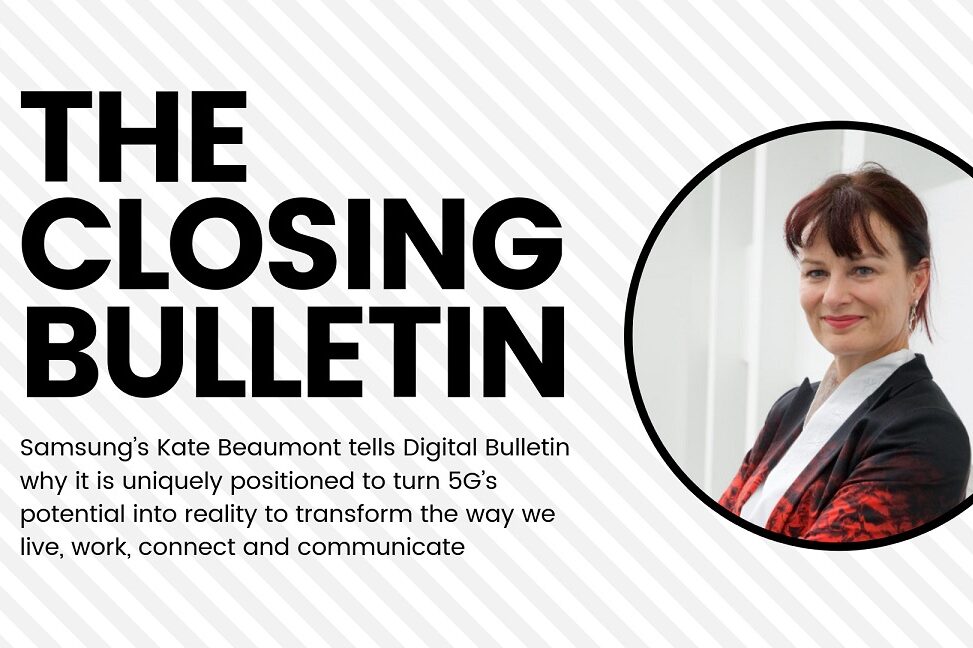
I think it’s safe to say that by now, we’ve all heard about 5G. And if you’re a mobile consumer, you might be thinking “so what?” Surely 4G is good enough – do you really need to care about this next-generation wireless network technology? Isn’t it just another iteration, bringing incremental changes that are no big deal?
My answer to these questions is this: think again.
5G represents a monumental leap forward for connectivity. New products, services, business models and entire industries will spring up as 5G brings about a seismic shift forward in speed, capacity and connectivity. It gives everything – cars, homes, drones, medical devices – instant access to the internet. This technology will extend wireless connectivity beyond our smartphones, radically enhancing machine-to-machine connections and fueling a genuinely connected life. That’s why I passionately believe 5G isn’t just hype.
But, questions remain; Why 5G now? Why is 5G so important to consumers’ lives? And what was it that led us at Samsung to make it a reality, even when this next-generation network was perceived as a difficult task with hurdles?
The answer lies first with the device in our pockets.
Transforming the device in our pockets
Smartphones have evolved in form and function so dramatically over the past decade. Only this year, we celebrated ten years of our iconic Galaxy S Series with the launch of the Galaxy S10 range of devices. And over the next decade, we’re going to witness even more incredible change. Not just in form factor, but in more revolutionary ways driven by 5G’s extremely low latency and blisteringly fast speeds.
What’s exciting for us at Samsung is that this change is not a decade away; it’s happening today, with exciting new use cases being discovered daily. Work is already underway on how we can realise a 5G-powered railway, meaning passengers can download all eight seasons of Game of Thrones – that’s 67 episodes or 56GB – in just 60 seconds, delivering a new era of on-board immersive entertainment. Or 5G smart factories, where businesses are adding IoT (Internet of Things) sensors to everything from products they sell to individual machines, allowing them to monitor production line performance enabling real-time decision making. The possibilities are endless and we’re excited to be at the forefront of this change.
In fact, we are leading the way when it comes to 5G; it’s why we’ve just launched our future-ready Galaxy S10 5G device in the UK – Samsung’s first commercialised 5G smartphone. The new Galaxy S10 5G will offer consumers a next-generation network experience and the most powerful feature set available on a Galaxy S device.
To ensure our first 5G device was as user-friendly and intuitive as possible, Samsung developed a major hardware innovation. Because a 5G phone must support all LTE legacy hardware, adding 5G-specific components such as the 5G modem chip and 5G RF chip naturally involved incorporating additional parts. We got around this by meticulously designing how and where to include these extra components to retain the Galaxy series’ streamlined, unibody design.
This was not the only hurdle we had to overcome with the Galaxy S10 5G; 5G networks consume a lot of battery power due to the large amount of data they have to transmit. We mitigated this challenge by incorporating the latest vapour chamber technology featuring new AI software that automatically optimises battery, CPU, RAM, and even device temperature based on how people use their phones. This smart software learns from its user over time.
We pushed through significant transformations to ensure we could deliver a 5G device that packs in the power but also delivers on style. Getting this right means we create infinite possibilities for consumers to use their S10 5G device as the central nervous system of an increasingly connected world. Moving from devices just talking to each other, to devices learning your preferences and acting autonomously to make your life totally seamless.
From the Internet of Things to the Internet of Everything
5G promises exciting implications for the future of connected living and will play a huge role in optimising the operation and connectivity of devices that harness artificial intelligence (AI) and IoT. The world of 5G will bring so much potential into the future technology field, including helping the realisation of smart factories and smart cities.
Imagine a world where video conferencing will no longer be in 2D but will take place in 3D. Imagine one day being able to stream 360-degree video on your smartphone with mobile data. Imagine a hospital where a consultant 5,000 miles away could deliver instructions to a smart surgeon robot in theatre. These are not scenarios of science fiction anymore.
Let’s take the example of a connected car, where data needs to be transmitted to the driver extremely fast. For instance, in the case of a car driving at a speed of 100km per hour, a 0.1 second delay in latency could result in a 3-meter difference. That lag creates monumental problems for the safety of autonomous cars. 5G is therefore crucial for industries too.
Revolutionising what’s possible
Samsung is serious about putting its money where its mouth is. We’re heavily investing in driving these technologies forward. In 2018, Samsung committed $22 billion in investments over three years to advancing emerging technologies, including AI, 5G and automotive electronics. And we’re not stopping there.
5G technology has the potential to completely revolutionise what is possible on a data network, much like the unprecedented possibilities offered to users by 4G when it was launched. Prior to 4G, people couldn’t imagine working on their phone using just mobile data, much less accessing the internet or streaming a video clip while on the go. But with the increased speeds and lower latency of the 5G bandwidth, 5G stands to offer more than just mobile advantages when compared with LTE.
Samsung’s scale and commitment to innovation puts it in a position to lead the way to a genuinely connected world. We’ve conquered many world firsts when it comes to 5G; from the world’s first gigabit speed 5G transmission to the first 5G handover between multiple cells and now, the first 5G smartphone on the market.
2019 marks the 50th anniversary of Samsung Electronics, so it seems apt that this is also the year we blazed a trail on 5G. The future of content and connectivity is being created today

Kate Beaumont is Director of Innovation, Technology and Services at Samsung Electronics UK and Ireland.


